Masonry Cost Estimator in Miami, FL
Estimate Florida Consulting is your premier destination for accurate and reliable masonry cost estimation services in Miami. In Miami, the tradition of masonry stands as a testament to its durability, aesthetic appeal, and timeless charm in construction. On average, the cost to install a new masonry wall, encompassing both materials and labor, is approximately $37.24+per square foot. Consequently, a 320 square foot wall would cost approximately $11,920+, with potential variations ranging from a minimum of $10,080 to a maximum of $13,790+, contingent upon factors such as location, material selection, and additional considerations.
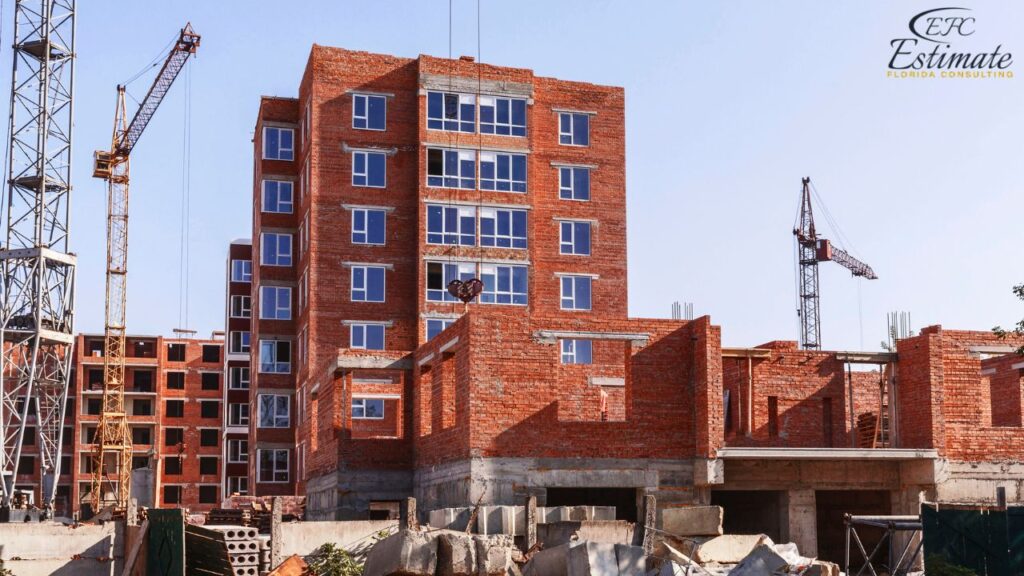
From residential homes adorned with brick veneers to commercial buildings boasting stately stone facades, masonry work enriches Miami,’s architectural landscape.
We Work for All Construction Trades
Construction trades encompass a variety of specialized roles, each critical to the successful completion of a project. Skilled tradespeople not only ensure the work is done right but also enhance safety, efficiency, and compliance with local building codes. From the initial groundwork to the final touches, every step requires expertise from dedicated professionals.
Brick cost
When purchasing bricks, there’s a diverse array of grades and sizes available, each suitable for various tasks. Opting for reclaimed bricks is an alternative that might yield savings, although antique reclaimed bricks command considerably higher prices due to their scarcity.
Typically, bricks range from $0.35 to $2.80 per brick, presenting a significant price spectrum. Consequently, costs can span from under $2.80 per square foot to over $14 per square foot.
Type of Brick | Average Price for 1,000 Bricks |
Standard Red Bricks | $560 – $1,260 |
Face Bricks | $490 – $1,120 |
Structural/Engineering Bricks | $560 – $1,260 |
Thin Bricks | $1,120 – $2,31 |
How Much Does a Masonry Wall Cost Per Square Foot?
On average, the expense for erecting a new masonry wall, covering both materials and labor, hovers around $37.24 per square foot. For instance, a 320 square foot wall could tally up to approximately $11,920. However, costs might range from as low as $10,080 to as high as $13,790, contingent on factors such as location, material preferences, and additional considerations.
90% More Chances to Win Projects With Our Estimate!
- Multi-Family Building
- Hotel Building
- Hospital Building
- Warehouse Building
- School & University Building
- High-Rise Building
- Shopping Complex
- Data Center Building

Brick Repair Cost Per Square Foot
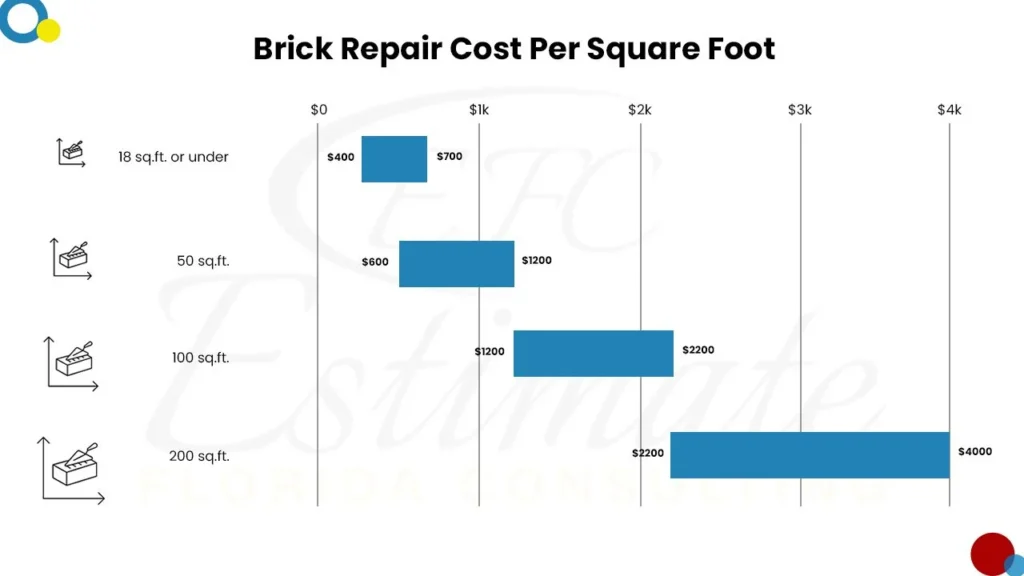
On average, the expense for erecting a new masonry wall, covering both materials and labor, hovers around $37.24 per square foot. For instance, a 320 square foot wall could tally up to approximately $11,920. However, costs might range from as low as $10,080 to as high as $13,790, contingent on factors such as location, material preferences, and additional considerations.
Initial Considerations: Planning Your Masonry Project
Project Scope and Design
Defining the scope of your masonry project is crucial for accurate cost estimation. Whether you’re envisioning a new facade, an ornamental stonework feature, or a sturdy retaining wall, each aspect brings its own intricacies and challenges. A new facade might involve intricate patterns or detailing, demanding a higher level of craftsmanship and thus, increased costs. On the other hand, a retaining wall requires structural integrity and possibly engineering considerations, which can also impact the overall expense. Moreover, the scale of the project, such as the size of the area to be covered or the height of the structure, plays a significant role in determining material and labor requirements.
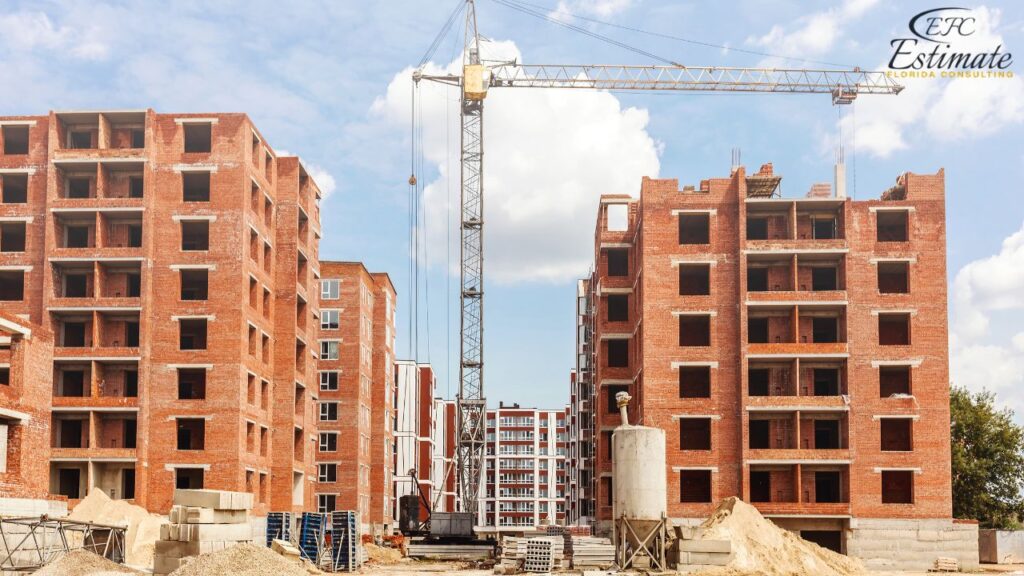
Thus, understanding the precise scope and design goals upfront is fundamental for a realistic budget.
Material Selection
Choosing the right masonry material is a critical decision that significantly influences both the aesthetics and the budget of your project. Each material—whether it’s brick, stone, or concrete blocks—brings its own unique advantages and cost considerations. Brick, renowned for its timeless appeal and durability, often commands a higher price due to its premium quality and craftsmanship required for laying. Natural stone, with its inherent beauty and variation, offers a luxurious aesthetic but may come with higher material costs and possibly more intricate installation requirements. On the other hand, concrete blocks provide a more economical option without compromising durability and versatility, making them suitable for various applications. However, the cost of materials isn’t solely dependent on their quality but also on factors like the source of the materials, transportation fees, and any additional treatments or finishes desired. Thus, carefully assessing the desired aesthetic, durability, and budget constraints is essential when selecting masonry materials.
- Multi-Family Building
- Hotel Building
- Hospital Building
- Warehouse Building
- High-Rise Building
- Shopping Complex
Labor Costs
Skilled masons are indispensable for executing masonry projects with precision and finesse. Their expertise becomes particularly valuable for intricate designs or when working with challenging materials like natural stone. Labor costs in Miami,, or any location, are influenced by various factors, including the availability of skilled labor, prevailing wages, and the complexity of the project. Additionally, the project timeline can impact labor costs, as rush jobs or tight deadlines may require additional resources or overtime pay. Moreover, the degree of craftsmanship required—whether it involves intricate patterns, specialized techniques, or precise detailing—can also affect labor expenses. Thus, when estimating labor costs for your masonry project, it’s essential to consider not just the hourly rates but also factors like skill level, project timeline, and craftsmanship requirements to ensure an accurate budget.
What is the Rate for Brick Masonry?
The rate for brick masonry services typically ranges between $70 and $98 per hour, varying based on the mason’s expertise and your geographical area. Typically, there’s a minimum fee of $280 to $420, which might suffice for very minor tasks.
How Much Does it Cost to Lay 1000 Bricks?
The cost to lay 1,000 bricks can vary depending on factors such as project complexity, location, and preparatory work needed. Generally, laying 1,000 bricks should typically range between $420 to $1,120.
Download Template For Masonry Project Breakdown
- Materials list updated to the zip code
- Fast delivery
- Data base of general contractors and sub-contractors
- Local estimators

Masonry Construction Guide
3 Storey Building
3 Story Building Masonry
ACC Block Masonry
Stone Siding Repair Cost
The cost of repairing exterior stone veneer varies based on the repair type. Typical repairs for issues like chipped, cracked, or buckling stones cost about $30 to $80 per square foot. Repairing simpler mortar issues is generally less expensive, ranging from $8 to $15 per square foot. However, replacing stones on higher floors can be more complex and may cost between $70 to $130 per square foot.
For maintaining the stone’s appearance, cleaning and sealing to prevent efflorescence and staining usually costs around $8 to $10 per square foot. Repairing flashing involves removing the stone covering it, fixing the flashing, and then putting the stone back, which costs between $25 and $64 per square foot. If the original stones are undamaged and reusable, this could potentially reduce the cost.
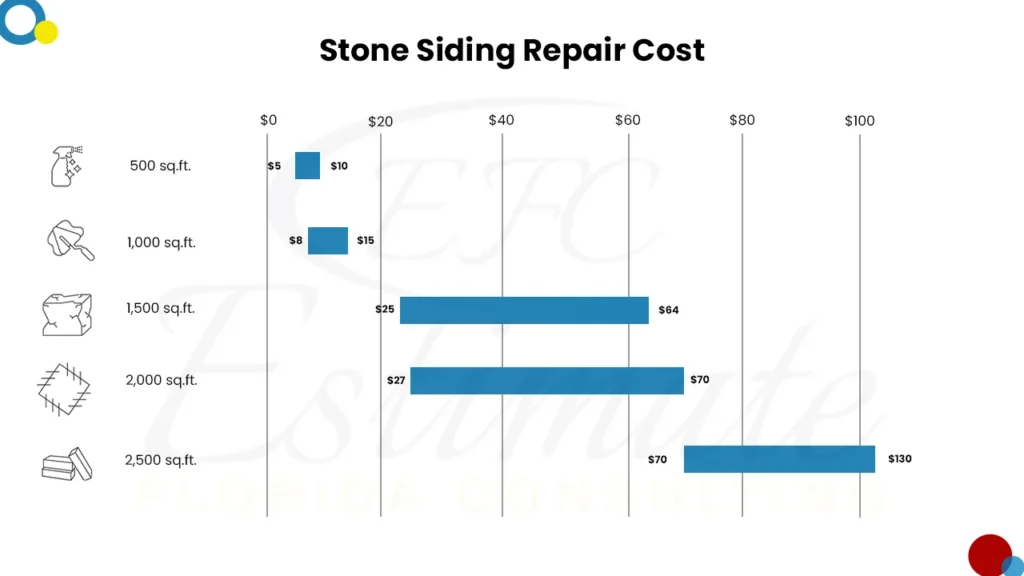
| REPAIR SERVICE | PRICE RANGE |
|---|---|
| Cleaning and Sealing | $5 to $10 |
| Mortar Repair | $8 to $15 |
| Fixing Chipped, Cracked, or Buckling Stone | $25 to $64 |
| Flashing Repair | $27 to $70 |
| Stone Replacements on Upper Floors (2nd/3rd) | $70 to $130 |
Sustainable Masonry Practices and Cost Implications
Eco-friendly Materials
Embracing sustainable practices in masonry projects involves exploring the use of eco-friendly materials like recycled or reclaimed bricks and stones. By opting for these materials, not only do you contribute to environmental conservation by reducing the demand for new resources and minimizing waste, but you may also encounter cost advantages. Recycled or reclaimed materials often come at a lower price point compared to newly manufactured ones due to reduced manufacturing and processing expenses. Additionally, using such materials can add character and uniqueness to your project, as each piece may carry its own history and story. However, it’s essential to assess the quality and condition of recycled or reclaimed materials to ensure they meet structural and aesthetic requirements, as well as any local building codes or regulations.
Business Finance Solutions
Find out if you're pre-qualified in seconds

Get Prequalified Now
IMPORTANT: Make sure the email and phone number you enter are correct. We will email and text you a link to get started.
Energy Efficiency
Integrating energy-efficient designs into masonry work offers significant benefits in terms of sustainability and cost savings over the long term. While there may be higher upfront costs associated with implementing features such as improved insulation capabilities in walls or incorporating thermal mass principles, the investment can pay off through reduced energy consumption and lower utility bills throughout the lifespan of the building. This is particularly relevant for both residential and commercial projects, where energy expenses can constitute a significant portion of operating costs. By enhancing the energy efficiency of masonry structures, you not only contribute to environmental sustainability by reducing greenhouse gas emissions but also enhance comfort levels for occupants and potentially increase property value. Moreover, with the growing emphasis on sustainability and energy conservation in building practices, incorporating energy-efficient designs can also enhance the marketability and competitiveness of a project in the long run.
Technological Advances in Masonry
Innovative Tools and Techniques
The masonry industry has seen remarkable advancements in recent years with the adoption of cutting-edge tools and construction techniques. One such advancement is the integration of innovative technologies like 3D printing with concrete or robotic bricklaying into traditional masonry practices. These technologies revolutionize the way masonry projects are executed, offering benefits such as increased precision, enhanced efficiency, and reduced labor costs. For instance, 3D printing allows for the rapid fabrication of intricate concrete structures with minimal material waste, thereby streamlining the construction process and shortening project timelines.
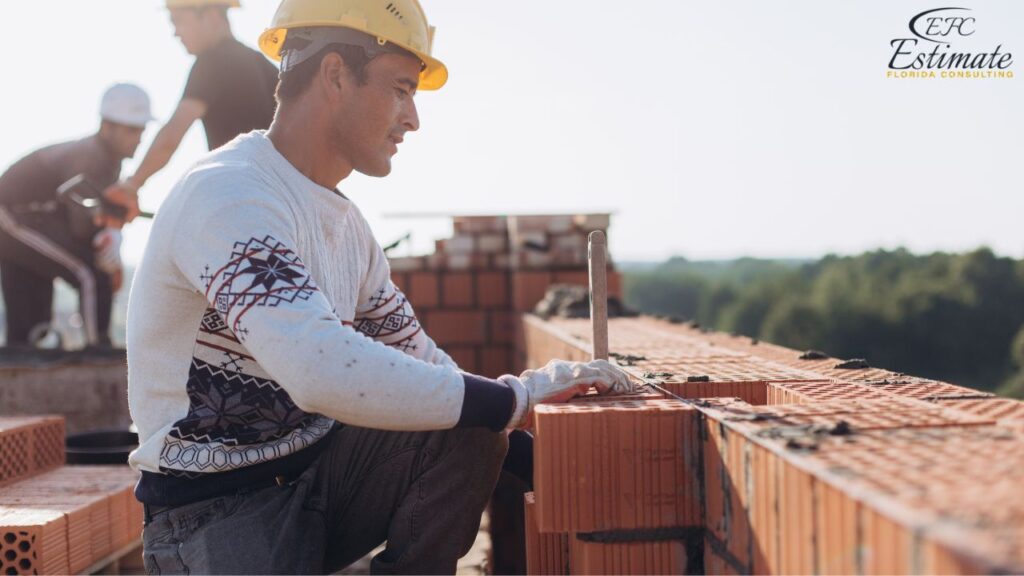
Similarly, robotic bricklaying systems automate the repetitive task of laying bricks, improving productivity and minimizing the reliance on skilled labor. While the initial investment in such technologies may be substantial, the long-term cost savings, coupled with the potential for higher quality outcomes, make them a worthwhile consideration for masonry projects of varying scales and complexities.
Software for Cost Estimation
The advent of specialized software tailored for masonry cost estimation has transformed the way projects are planned and budgeted for. These advanced tools leverage computational algorithms to analyze various factors such as material prices, labor rates, project specifications, and even geographical location to generate detailed and accurate cost projections. By automating the estimation process, these software solutions eliminate the potential for human error and ensure that all relevant expenses are accounted for, thereby reducing the likelihood of unforeseen costs during the construction phase. Moreover, these tools offer the flexibility to generate multiple scenarios and compare cost implications, enabling stakeholders to make informed decisions and optimize budget allocations. Additionally, the intuitive user interface of such software makes it accessible to professionals across the masonry industry, from architects and engineers to contractors and project managers, enhancing collaboration and communication throughout the project lifecycle.
Brick Siding Cost by Type
A variety of brick types are offered for siding, each with its own price range. Basic brick siding begins at an affordable $4 per square foot, while elaborate options such as interlocking brick or custom brick siding can cost as much as $29 per square foot. Available choices include traditional full-sized bricks and thinner, more cost-effective bricks.
The choice of brick can be influenced by factors like the location of installation and whether the brick is the primary siding material. Decisions might be based on cost considerations or the ease of installation. Brick siding materials are presented in different formats – some are available as individual bricks, while others come as interlocking brick sheets designed for seamless connection with adjacent sheets.
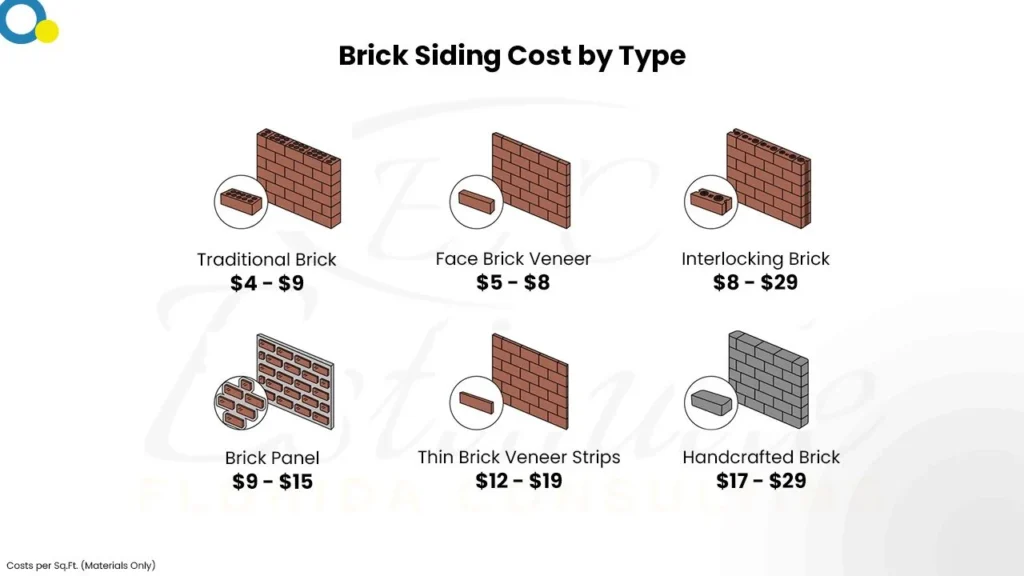
| TYPE OF BRICK SIDING | COST PER SQUARE FOOT (Materials Only) |
|---|---|
| Traditional Brick | $4 to $9 |
| Face Brick Veneer | $5 to $8 |
| Interlocking Brick | $8 to $29 |
| Brick Panel | $9 to $15 |
| Thin Brick Veneer Strips | $12 to $19 |
| Handcrafted Brick | $17 to $29 |
Need Template For Your Masonry Business
We provide services for Brochure, Banner, Business Card, Envelope, Invoice, etc.

Regulatory Environment and Its Impact on Costs
Local Building Codes
Navigating Miami,’s building codes is imperative for any masonry project, as compliance with these regulations directly impacts material choices, construction methods, and project timelines. These codes dictate various aspects of construction, including structural integrity, fire safety, accessibility standards, and environmental considerations. Failure to adhere to these codes can result in costly consequences, such as fines, mandatory modifications, or even halting construction altogether. For example, specific materials or construction techniques may be mandated to ensure resilience against hurricanes or other natural disasters common in the region.
Permitting Process
The permitting process in Miami, is a crucial aspect of masonry projects, as it involves navigating various regulatory requirements, fees, and waiting periods. Before commencing any construction activity, obtaining the necessary permits from local authorities is mandatory. These permits ensure that proposed masonry projects comply with zoning regulations, building codes, environmental standards, and other legal requirements. However, the permitting process can introduce additional costs and delays to the project timeline. Permitting fees, which vary depending on the scope and scale of the project, must be factored into the overall budget. Moreover, the time required to obtain permits can vary, ranging from a few weeks to several months, depending on the complexity of the project and the efficiency of the local permitting authority.
Are You Looking For?

Fully Insured License
Hire Subcontractor for Masonry Work
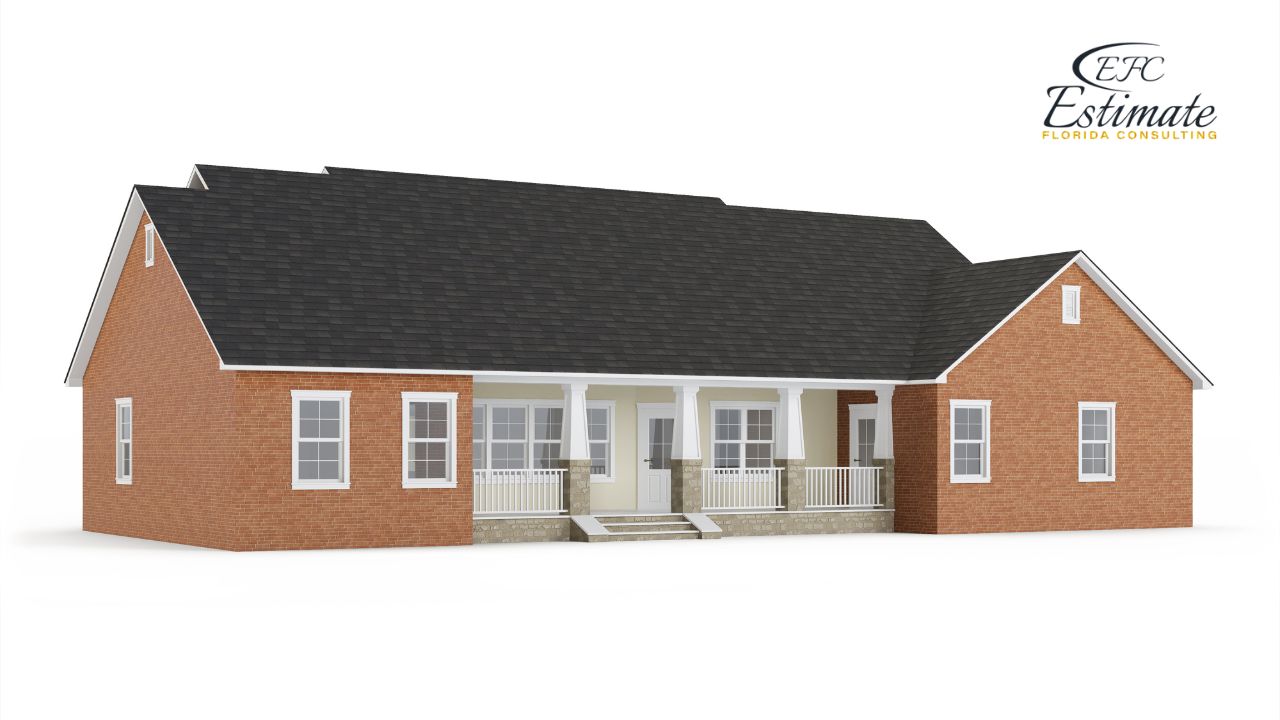
Make Informed Design Decisions Showcase Your Design Ideas
Get RenderingCall Us To Discuss More at 561-530-2845
Conclusion
Masonry plays a vital role in shaping the architectural landscape of Miami,, embodying durability, aesthetic appeal, and timeless charm. With a rich tradition in masonry craftsmanship, Miami, offers a diverse array of materials and techniques to meet varying project needs. While costs can vary based on factors such as material selection, labor rates, and project scope, embracing sustainable practices and leveraging technological advancements can enhance efficiency and cost-effectiveness in masonry projects. Navigating regulatory requirements and embracing innovative tools and techniques are essential for successful project execution in Miami’s dynamic construction environment.
Choose Your Trade & Get a Sample Project
FAQs
On average, installing a new masonry wall in Miami, costs about $37.24 per square foot, considering both materials and labor. For a project covering 320 square feet, you’re looking at an approximate total of $11,920. However, depending on the project’s specifics, costs can range from $10,080 to $13,790.
Bricks in Miami, can vary widely in cost, ranging from $0.35 to $2.80 per brick. This price variance leads to a square footage cost of under $2.80 to over $14, depending on the brick type and quality selected for the project.
- Standard Red Bricks: $560 – $1,260 per 1,000 bricks
- Face Bricks: $490 – $1,120 per 1,000 bricks
- Structural/Engineering Bricks: $560 – $1,260 per 1,000 bricks
- Thin Bricks: $1,120 – $2,310 per 1,000 bricks
The rate for brick masonry services typically falls between $70 and $98 per hour in Gainesville. Most masons have a minimum fee for smaller tasks, which can range from $280 to $420, covering the cost of labor and materials for minor projects.
For a medium-sized project, such as building a brick patio or a small retaining wall, you should budget for the higher end of material and labor costs due to Miami’s specific requirements and the potential complexity of the work. A safe budget range would be $15,000 to $25,000, encompassing quality materials, skilled labor, permitting fees, and any additional design or structural considerations.
Process To Get Masonry Cost Estimate Report
Here I am going to share some steps to get your masnory cost estimate report.
-
You need to send your plan to us.
You can send us your plan on info@estimatorflorida.com
-
You receive a quote for your project.
Before starting your project, we send you a quote for your service. That quote will have detailed information about your project. Here you will get information about the size, difficulty, complexity and bid date when determining pricing.
-
Get Estimate Report
Our team will takeoff and estimate your project. When we deliver you’ll receive a PDF and an Excel file of your estimate. We can also offer construction lead generation services for the jobs you’d like to pursue further.
Google Reviews




















